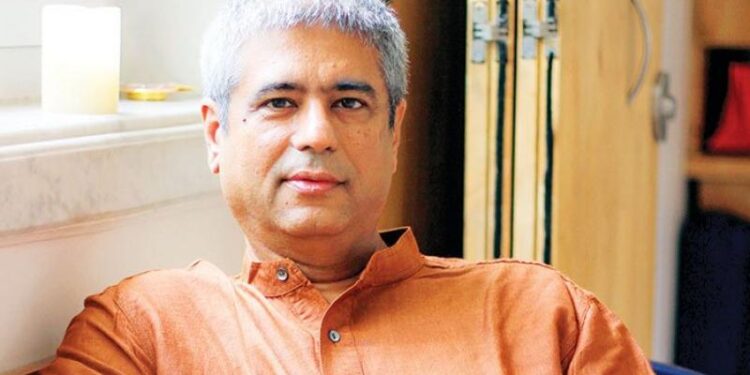Mahesh Dattani Biography and Work
What is the life and work of Mahesh Dattani?,What are the four plays of Mahesh Dattani?,What is the contribution of Mahesh Dattani to Indian English drama?,What is the theatre group of Mahesh Dattani?,What was Mahesh Dattani’s first work?,Who is Mahesh Dattani summary?,What is the most important theme in Dattani’s play?,Mahesh Dattani, born on August 7, 1958, in Bangalore, India, is a distinguished playwright, director, and actor whose profound impact on Indian theatre and cinema spans several decades. This in-depth biography delves into Dattani’s early life, his trajectory in the realm of theatre, major literary works, and his transformative influence on contemporary Indian drama.Mahesh Dattani Biography and Work
Early Years:
Growing up in Bangalore, Mahesh Dattani experienced a culturally rich environment that nurtured his early fascination with the arts. Born into a traditional Gujarati family, his exposure to diverse cultural influences laid the groundwork for his later exploration of identity, sexuality, and societal norms in his literary works. The formative years in Bangalore significantly shaped his understanding of India’s social fabric, themes that would manifest prominently in his plays.Mahesh Dattani Biography and Work
Educational Pursuits:
Dattani’s educational journey took him through Baldwin Boys’ High School and St. Joseph’s College in Bangalore. Despite an initial focus on dramatics and the arts, he ventured to the United States for further studies at Wesleyan University. This international exposure broadened his horizons and provided him with a comprehensive perspective on theatre and storytelling.
Also Read-
Entry into Theatre:
Upon returning to India, Mahesh Dattani initially embarked on a career in advertising. However, his passion for theatre soon took precedence, leading to his emergence as a significant figure in the Indian theatre scene during the late 1980s and early 1990s. Dattani’s early works garnered attention for their exploration of social issues, family dynamics, and the delicate interplay between tradition and modernity.Mahesh Dattani Biography and Work
Contribution to Indian Theatre:
Mahesh Dattani’s contributions to Indian theatre transcend his individual works. He played a pivotal role in reshaping the landscape of Indian drama, introducing contemporary themes and challenging societal norms. Known for realistic character portrayals, exploration of complex emotions, and initiating important conversations about societal issues, Dattani left an indelible mark.

Dattani’s directorial ventures, encompassing stage productions and film adaptations of his plays, showcased his versatility. His storytelling approach, grounded in a keen understanding of human psychology and a commitment to authenticity, resonated with audiences across India and beyond.
Film Career:
In addition to his theatrical accomplishments, Mahesh Dattani ventured into filmmaking. He directed the film adaptation of his play Mango Souffle (2002), a groundbreaking exploration of homosexuality and societal prejudices. The film’s acclaim further solidified Dattani’s reputation as a thought-provoking storyteller across multiple mediums.
Awards and Recognition:
Mahesh Dattani’s contributions have garnered numerous awards, including the Sahitya Akademi Award for Final Solutions in 1998. His works have been staged and appreciated not only in India but also on international platforms, cementing his status as a literary and theatrical luminary.
Legacy and Impact:
Dattani’s legacy extends beyond his individual works, influencing contemporary playwrights, actors, and directors. His courage to address taboo subjects, combined with his artistic brilliance, has paved the way for a new generation of storytellers to explore diverse themes and narratives.
Mahesh Dattani’s impact on Indian theatre lies in his ability to transcend cultural and societal boundaries, presenting stories that resonate globally. His exploration of identity, sexuality, and societal norms remains relevant, contributing to ongoing conversations about inclusivity and acceptance.
- Social Commentary: Dattani is known for his keen observation of societal norms, conventions, and contemporary issues. His works often serve as a lens through which he scrutinizes and critiques the complexities of Indian society, addressing topics ranging from family dynamics and gender identity to communalism and societal prejudices.
- Realistic Characterization: A hallmark of Dattani’s writing is his ability to create characters that resonate with authenticity. His plays feature individuals grappling with multifaceted emotions, allowing audiences to connect with the human experience on a personal level. The nuanced portrayal of characters contributes to the relatability and depth of his narratives.
- Exploration of Taboos: Dattani is renowned for his courage in addressing societal taboos. His willingness to explore sensitive subjects, such as homosexuality, child sexual abuse, and gender identity, sets him apart as a playwright unafraid to delve into the often-uncomfortable realities of contemporary life.
- Multilayered Themes: Dattani’s works are characterized by multilayered themes that invite audiences to engage in thought-provoking reflections. Whether examining the clash between tradition and modernity or probing the intricacies of interpersonal relationships, his plays are rich in thematic depth, prompting viewers to contemplate societal constructs.
- Narrative Structure: Dattani employs a sophisticated narrative structure that weaves together multiple threads to create a cohesive and impactful storyline. His plays often unfold through a series of interconnected events, revealing the complexities of human relationships and societal dynamics.
- Symbolism and Metaphor: Dattani frequently employs symbolism and metaphor to enhance the depth and resonance of his narratives. Through carefully crafted symbols and metaphors, he adds layers of meaning, inviting audiences to interpret his works on both literal and symbolic levels.
- Influence of Cultural Diversity: Growing up in a culturally diverse environment, Dattani’s writing reflects the rich tapestry of Indian culture. His plays incorporate elements from various cultural backgrounds, contributing to a broader understanding of the diverse sociocultural landscape of the country.
- Adaptability to Film: With a foray into filmmaking, Dattani’s writing style seamlessly transitions to the cinematic medium. His ability to capture visual nuances and evoke emotions translates well to the screen, as seen in the film adaptation of his play Mango Souffle.Mahesh Dattani Biography and Work
Conclusion:
Mahesh Dattani’s illustrious career as a playwright, director, and filmmaker has left an indelible mark on Indian theatre and cinema. His journey from a culturally rich upbringing in Bangalore to becoming a trailblazing storyteller is characterized by a profound commitment to addressing societal issues, a nuanced exploration of human emotions, and a fearless approach to tackling taboos. Dattani’s writing style, marked by its realism, social commentary, and multilayered themes, has garnered widespread acclaim and established him as a leading figure in the cultural landscape of India.Mahesh Dattani Biography and Work
Through major works like Dance Like a Man, 30 Days in September, and Final Solutions, Dattani has not only entertained but also provoked thought, challenging societal norms and initiating crucial conversations. His plays, known for their realistic characterizations and exploration of diverse themes, continue to resonate with audiences, transcending cultural boundaries and inspiring a new generation of storytellers.What is the life and work of Mahesh Dattani?,What are the four plays of Mahesh Dattani?,What is the contribution of Mahesh Dattani to Indian English drama?,What is the theatre group of Mahesh Dattani?,What was Mahesh Dattani’s first work?,Who is Mahesh Dattani summary?,What is the most important theme in Dattani’s play?,
As a cultural icon, Mahesh Dattani’s legacy extends beyond the stage and screen, influencing the trajectory of Indian drama and contributing to ongoing discussions about inclusivity, acceptance, and the evolving dynamics of contemporary society. His impact on both literature and filmmaking serves as a testament to the transformative power of storytelling.
FAQ:
1. What are some of Mahesh Dattani’s major works?
Dattani’s major works include Dance Like a Man, 30 Days in September, Final Solutions, Where There’s a Will, and Bravely Fought the Queen. These plays showcase his ability to tackle diverse themes with realism and social consciousness.
2. How does Mahesh Dattani address societal taboos in his works?
Dattani is known for his courage in addressing societal taboos, including topics like homosexuality, child sexual abuse, and gender identity. His plays navigate these sensitive subjects with a nuanced and thought-provoking approach.
3. What is Mahesh Dattani’s writing style known for?
Dattani’s writing style is characterized by its realism, social commentary, and exploration of multilayered themes. He creates authentic characters, employs symbolism and metaphor, and weaves narratives that engage with contemporary issues.
















